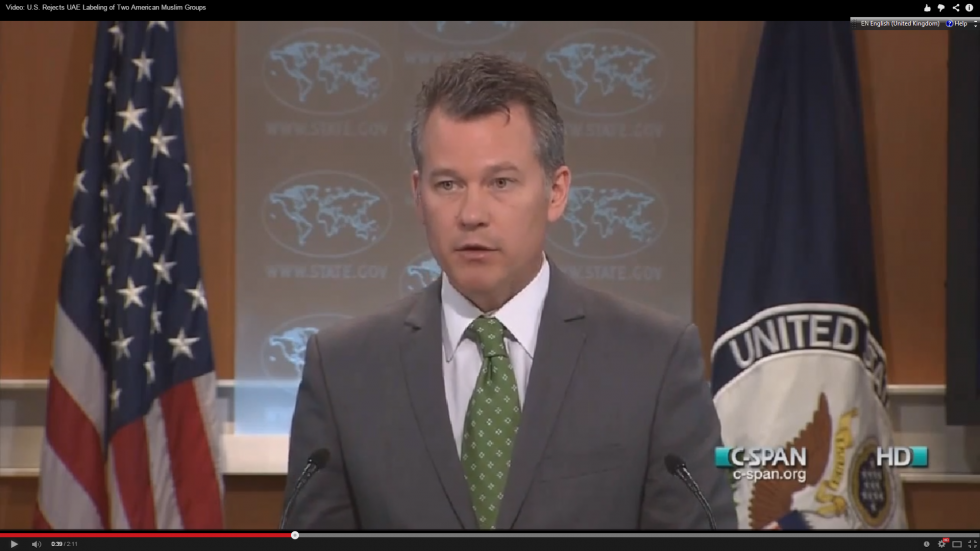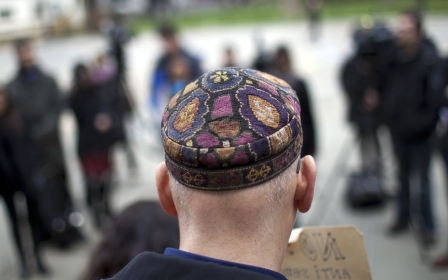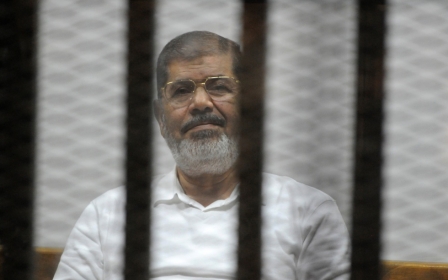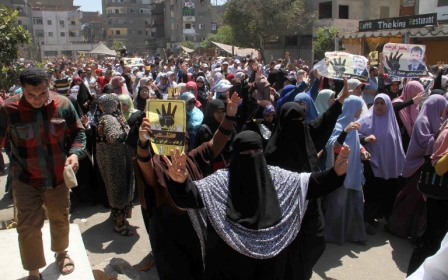US rejects UAE terrorist designation of American groups

US State Department spokesman Jeff Rathke said on Monday the administration was in contact with United Arab Emirates (UAE) officials to seek clarity regarding the designation of two US organisations as terrorist groups.
The UAE on Saturday included the Council on American-Islamic Relations (CAIR) and the Muslim American Society (MAS) in an updated list of 86 organisations designated as terrorist groups under an anti-terror law issued by Sheikh Khalifa bin Zayed al-Nahyan.
“The UAE Cabinet has approved a list of designated terrorist organisations and groups [in a new law aimed at] combating terrorist crimes,” the UAE said.
However, CAIR spokesperson Corey Saylor told MEE: “We find the list puzzling and bizarre,” while MAS spokesperson Oussama Jammal said “we were shocked.”
“The clear message from the UAE is that law-abiding groups can still be designated as terrorists, which is an awful message for any government to send to any community,” Saylor added.
Rathke told reporters that while “the US government does not consider these organisations to be terrorist organisations”, it is “seeking more information from the government of the UAE about why that designation was made and what their information is.”
While he acknowledged that as part of the US state department’s “routine engagement with … fait-based organisations, a range of US government officials have met with officials of CAIR and MAS,” he did not elaborate positively on those interactions saying “even if some views expressed are at times controversial”.
Organisation representatives have now said that they will be pursuing further avenues to clear their organisations’ names.
“We’re reaching out to the government and asking for something stronger from the US State Department. The US needs to say clearly that law-abiding citizens have nothing to do with this,” said Saylor. "We are considering all of our options within US law."
Jammal added: “We are engaging in discussion for the listing to be revoked. The UAE has to come with a clear answer on this: do they know more than our government knows?”
While both organisation relegated their designation on the list as a result of regional politics, they said it may have a negative impact on them.
While “our community recognises that the UAE’s move was based on Gulf politics and has no factual basis… the effect it [the designation] will have is what we see already; groups who dislike Muslims will use it against us,” said Saylor.
Jammal agrees: “It will be played at the hands of the islamophobes and that is a major concern to us as it may create a backlash.”
CAIR faced scrutiny in 2011 when it was accused of being an “unindicted co-conspirator or joint venturer” with the Holy Land Foundation case, a Muslim charity that was convicted of funding militant groups in 2008. The US government never raised criminal charges against CAIR, however.
Several Europe-based organisations including the Muslim Association of Britain in the UK, Islamic Relief Organisation in London, the Islamic Associations in Norway and Denmark and the Union of Islamic Organisations in France, among others, were also included.
The designation elicited a strong reaction from Norway.
Norway’s foreign ministry said on Sunday that: “The foreign ministry finds it hard to understand why Det Islamske Forbundet (The Islamic Association in Norway) has been included on the list of designated terrorist organizations issued by the United Arab Emirates,” said Bard Glad Pedersen, state secretary in the foreign ministry.
Other groups on the list include the Islamic State which has captured swathes of territory in Iraq and Syria; the Houthis, a group of Shiite rebels in Yemen; Ansar Beit Al-Maqdis in Egypt and Al-Qaeda in the Arab Maghreb.
New MEE newsletter: Jerusalem Dispatch
Sign up to get the latest insights and analysis on Israel-Palestine, alongside Turkey Unpacked and other MEE newsletters
Middle East Eye delivers independent and unrivalled coverage and analysis of the Middle East, North Africa and beyond. To learn more about republishing this content and the associated fees, please fill out this form. More about MEE can be found here.




